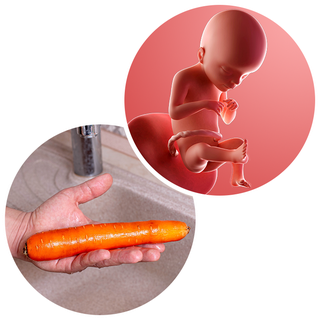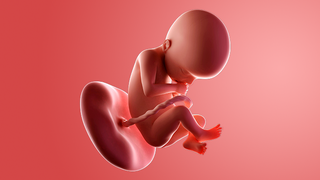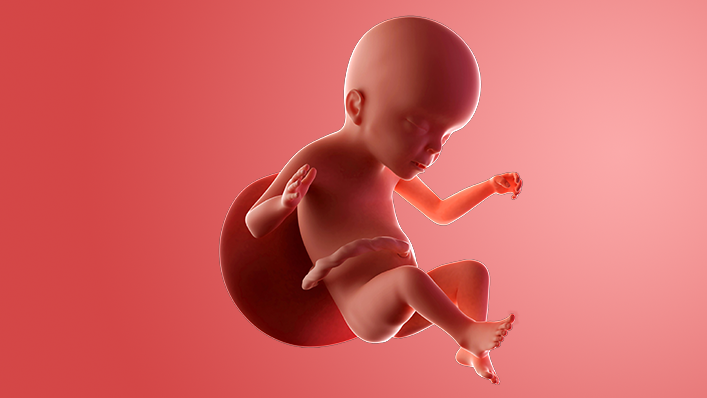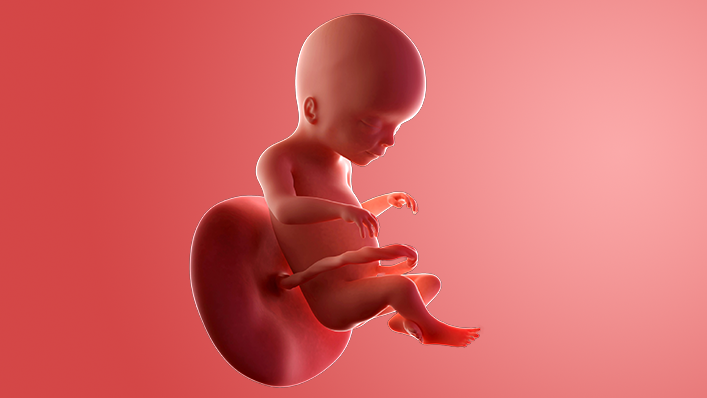- Week 13
- Week 14
- Week 15
- Week 16
- Week 17
- Week 18
- Week 19
- Week 20
- Week 21
- Week 22
- Week 23
- Week 24
- Week 25
- Week 26
- Week 27
Week 21
As you start the 2nd half of your pregnancy, you'll be entering a period of rapid growth.
Your baby is getting ready for life outside the womb and developing essential skills including sucking and breathing.
What's happening in my body?
You may start feeling a little unsteady as your bump gets bigger. This is because your center of gravity has changed and your joints are looser.
If you have a tumble, try not to panic as your baby is well protected, but do let your midwife know as soon as possible.
If you travel on public transport, think about getting a baby on board badge to prompt other commuters to give up their seats.
Your baby is moving around a lot now, and establishing waking and sleeping patterns. The only trouble is, your baby may be wide awake when you are ready to sleep.
Have naps when you can to make up for lost sleep at night. Read more sleep tips.
Dump the junk food
A healthy diet, with lots of fresh fruit and veg, will give you more energy than junk food.
Research shows that if you eat well, your baby will too, and you're both less likely to get conditions like diabetes.
Try to eat 5 portions of fruit and veg a day, and go for wholegrain, low-fat and low-sugar options when you're given the choice.
Here are some easy recipes you can try.
Simple food swaps
Swap takeaways for healthier and tastier homemade alternatives. Give these a go:
- cheats' pizza calzone
- chicken and banana korma (you can use tofu if you're vegetarian)
- homemade fish and chips
2nd trimester pregnancy symptoms (at 21 weeks)
This week, your signs of pregnancy could include:
- tiredness and sleeping problems (week 19 has information about feeling tired)
- stretch marks (read about stretch marks on week 17's page)
- swollen and bleeding gums (week 13 has information about gum health during pregnancy)
- pains on the side of your baby bump, caused by your expanding womb ("round ligament pains")
- piles (read about piles on week 22's page)
- headaches
- backache
- nosebleeds
- indigestion and heartburn (week 25 talks about digestive problems)
- bloating and constipation (read about bloating on week 16's page)
- leg cramps (week 20 explains how to deal with cramp)
- feeling hot
- dizziness
- swollen hands and feet
- urine infections
- vaginal infections (see week 15 for vaginal health)
- darkened skin on your face or brown patches – this is known as chloasma or the "mask of pregnancy"
- greasier, spotty skin
- thicker and shinier hair
You may also experience symptoms from earlier weeks, such as:
- mood swings (week 8's page has information on mood swings)
- morning sickness (read about dealing with morning sickness on week 6's page)
- weird pregnancy cravings (read about pregnancy cravings on week 5's page)
- sore or leaky breasts (read about breast pain on week 14's page)
- a white milky pregnancy discharge from your vagina and light spotting (seek medical advice for any bleeding)
What does my baby look like?
Your baby, or foetus, is around 26.7cm long from head to toe. That's approximately the size of a carrot.
Your baby is now heavier than the placenta. The placenta basically doubles up as a larder and toilet, by providing food and removing waste. It will keep on growing during your pregnancy to do its vital work.
Meanwhile your baby has been developing a fine, downy layer of hair called "lanugo" – the purpose of this fur coat is probably to keep your baby at the perfect temperature, and it usually vanishes before the birth. Your baby is also developing hair and eyebrows.
Your baby can now hear noises and voices outside the womb. If you sing to your bump, no matter how bad it sounds, they will be your biggest fan.

Action stations
Pregnancy can be a happy time, but for some it's stressful and there are lots of difficult decisions to make.
If you were given any unexpected news at your anomaly scan, you may be feeling very worried. Try talking through your options with your doctor or midwife.
You could also call the free helpline run by a charity called Antenatal Results and Choices.
More in week-by-week

Week 22
As you start the 2nd half of your pregnancy, you'll be entering a period of rapid growth. Your baby is getting ready for life outside the womb and developing essential skills including sucking and breathing.
More in week-by-week guide to pregnancy


